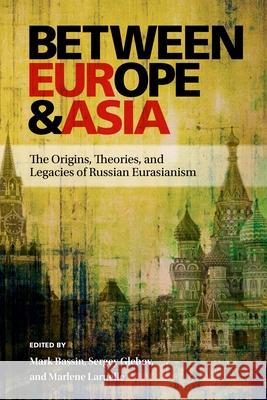Between Europe and Asia: The Origins, Theories, and Legacies of Russian Eurasianism » książka
Between Europe and Asia: The Origins, Theories, and Legacies of Russian Eurasianism
ISBN-13: 9780822963660 / Angielski / Miękka / 2015 / 280 str.
Between Europe and Asia analyzes the origins and development of Eurasianism, an intellectual movement that proclaimed the existence of Eurasia, a separate civilization coinciding with the former Russian Empire. The essays in the volume explore the historical roots, the heyday of the movement in the 1920s, and the afterlife of the movement in the Soviet and post-Soviet periods. The first study to offer a multifaceted account of Eurasianism in the twentieth century and to touch on the movement's intellectual entanglements with history, politics, literature, or geography, this book also explores Eurasianism's influences beyond Russia.
The Eurasianists blended their search for a primordial essence of Russian culture with radicalism of Europe's interwar period. In reaction to the devastation and dislocation of the wars and revolutions, they celebrated the Orthodox Church and the Asian connections of Russian culture, while rejecting Western individualism and democracy. The movement sought to articulate a non-European, non-Western modernity, and to underscore Russia's role in the colonial world. As the authors demonstrate, Eurasianism was akin to many fascist movements in interwar Europe, and became one of the sources of the rhetoric of nationalist mobilization in Vladimir Putin's Russia. This book presents the rich history of the concept of Eurasianism, and how it developed over time to achieve its present form."











